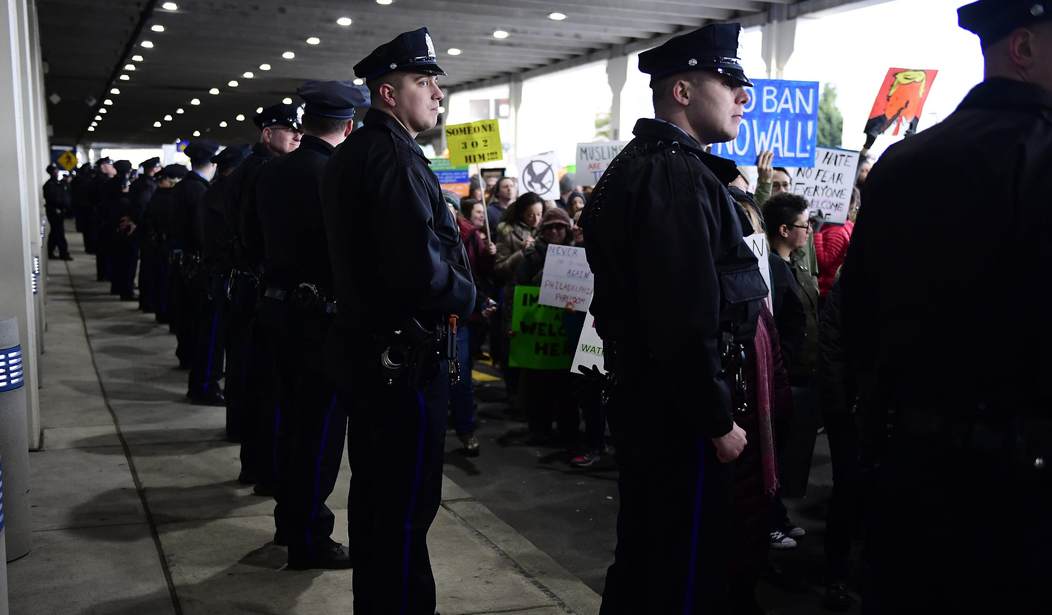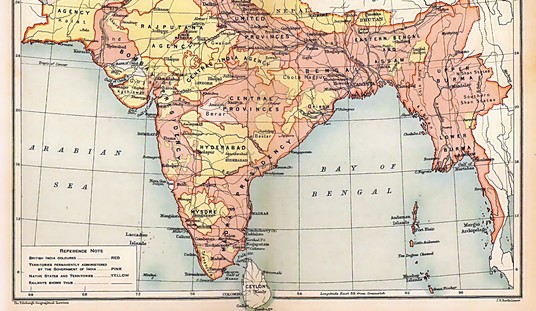WASHINGTON – In a potential Supreme Court preview, two attorneys on Thursday argued about the validity of the high court considering President Trump’s comments about Muslims as evidence when deciding the fate of his travel ban.
“This entire thing has come down to a judicial reading of (President Trump’s) campaign statements to issue a major constitutional ruling,” Will Consovoy, a partner at Consovoy McCarthy Park PLLC, said at the Heritage Foundation.
Consovoy, whose firm has filed an amicus brief in support of the travel ban order, said that he would find it deeply troubling if the Supreme Court were to use the president’s campaign statements as evidence of bias. If that argument succeeds, he said the U.S. should be prepared to have active litigation every time a president issues an order, with reviews of everything said in public life.
David Fontana, an associate professor at George Washington University School of Law, said that political statements, particularly recent ones, are entirely fair. He cited the criminal case against Sen. Bob Menendez (D-N.J.) as an example. Fontana said that there has to be a reasonable time limit, but the objective observer would agree that Trump’s campaign promises are valid in determining the purpose behind the travel ban.
Trump’s campaign in December issued a statement calling for “a total and complete shutdown of Muslims entering the United States until our country’s representatives can figure out what is going on,” which Trump called out during a South Carolina rally.
“Has enough time passed and have enough countries been added to remove that taint?” Fontana asked.
Shortly after taking office, Trump issued his executive order temporarily banning travel from seven Muslim majority countries: Iraq, Iran, Syria, Yemen, Libya, Sudan and Somalia. Lawsuits ensued, and federal courts put the travel ban on hold. Trump amended the order in March, removing Iraq. Though federal judges in Maryland and Hawaii later upheld the previous court’s decision, the Supreme Court in June allowed certain parts of the ban to take effect.
A week ago, Trump levied travel restrictions of varying degrees on three more countries – North Korea, Venezuela and Chad – while Iran, Libya, Syria, Yemen and Somalia remain on the list. The ACLU, which is leading one of two cases challenging the ban, immediately fired off a response, saying the recent additions don’t hide that the order is a Muslim ban.
The Supreme Court on Monday canceled oral arguments set for Oct. 10, instead asking parties to file supplemental letter briefs by Oct. 5.
“This action by the Supreme Court is not surprising given the government’s decision to issue a new version of the ban at the eleventh hour,” Director of ACLU’s Immigrants’ Rights Project Omar Jadwat said in a statement. “Both sides will address the implications of that new ban order for the existing case in written submissions to the court. The ban has been repeatedly held unconstitutional and illegal by the courts and those decisions remain in place today.”
The lawsuits were brought by families claiming injury because relatives had been barred from entering the United States. Consovoy noted that those family members in question have since been admitted into the U.S. He argued that the executive order itself is facially neutral, and that had President Obama, or any other president, invoked the ban, the case never would have gotten this far.
Fontana said that a central question from the case is not whether immigrants have the right to live in the U.S. but whether there is validity for the reasons they are being denied. Consovoy disagreed, saying the question is more whether the family members living in the U.S. can show standing and proof that they have somehow been injured by the travel ban.









Join the conversation as a VIP Member